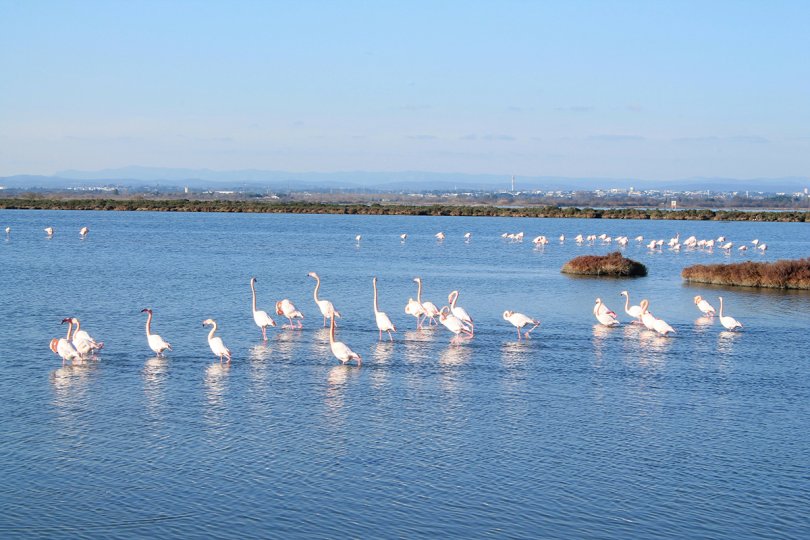
Health and environment
To what point does visiting a natural habitat modify the importance we give it? Does the value we give a place increase if, with each visit, we have a better academic and personal understanding of it? To respond to these questions, the researchers Mariam Maki Sy, Hélène Rey-Valette, Charles Figuières, Monique Simier, and Rutger de Wit examined the Palavas lagoons complex near Montpellier, France. The result of their study is undeniable: in most cases, an individual’s familiarity with a habitat changes his preferences. Scientific understanding also changes an individual’s preferences, but in a different way. Let’s discover how.
Does our scientific understanding of a natural environment change the importance we give it? That said, does frequently visiting a particular ecosystem change the way we perceive its benefits? These are the key questions being studied by conservation policy managers as they examine how natural habitats are viewed by citizens. Their aim is to reinforce measures that promote awareness and understanding through engagement and nudges.
Surrounding the city Palavas-les-Flots, there are seven lagoons that make up a unique landscape. Separated from the sea by a small strip of land, they are a natural habitat for several species. This area is greatly appreciated by nature lovers and provides humans both direct and indirect natural benefits. Also known as economic services, these benefits encompass protection from flooding, recreation, and food provision (mainly salt marsh sheep and fishing).
However, over-visitation and development threatens this area of 3,880 hectares. So, when confronted with such risks, what ecosystem services should be a protected in priority? A team of researchers worked hand-in-hand with officials in charge of the area to evaluate how frequent visits and academic knowledge impact the perceived importance of each ecosystem service. Their hypothesis? A greater understanding of a service’s importance promotes environmentally friendly behaviors with respect to it.

Photo by Picturereflex onAdobe Stock
The researchers surveyed 442 people and divided this group up into two sub-populations, with one being the residents of the studied area and the other a panel of citizens who do not live near the coastline. From the same survey, the researchers sought to test how the frequency of visiting and familiarity with the area influenced people’s perceptions of it. The individuals surveyed had to attribute for each of the twenty ecosystem services provided by the lagoon complex a level of conservation priority, by selecting between “high priority,” “priority,” “neutral,” “low priority,” and “not a priority.”
To study the role that academic information plays, the researchers had the local residents participate in workshops and visit the area as experts presented the main process of each service. The population studied was therefore made up of individuals with different levels of understanding of the area (people either familiar or not with the area, and with or without academic knowledge about it). The individual rankings were obtained according to the majority judgment (MJ) method. This allowed the researchers to understand how either familiarity or scientific understanding of the area impacted its appreciation. The result demonstrates that understanding impacts appreciation of eleven of the twenty services studied. Beyond this simple message, we receive certain answers to two major questions. How do citizens rank these ecosystem services and why do citizens change certain preferences after acquiring knowledge about these services?
The ways to aggregate preferences have always been the subject of debate as people have sought to propose representative and democratic voting processes. Formal analyses on voting methods go back at least as far as the 18th century with the Enlightenment. Jean-Charles de Borda (1770) supported a method which consisted in noting all the elements of a choice rather than choosing one option among these many elements. With the voting method called Majority Judgment (Balinski and Laraki, 2007), citizens do not judge the options with numbers but with qualitative assessments, or mentions, such as for example ‘Excellent’, ‘Very good’, ‘Good’, ‘Average’, ‘Poor’, ‘Insufficient’, ‘To be rejected’. Then, for each option, the method calculates the median of the distribution of the mentions it has obtained (the so-called majority mention). Finally, the winning option is the one that obtained the best majority mention.
What are the nine services that do not seem to be impacted by information acquisition? These include all the regulation and maintenance services (water purification capacity, flooding and erosion protection), one out of three provisioning services (fishing), and three out of twelve cultural services (which are recreational in nature, like hiking and walking, as well as opportunities offered by lagoons for environmental research and education). These were all deemed “priority,” besides fishing, which was at best a “neutral” priority. One reason why these services have been considered a priority independent of scientific knowledge may be attributed to the citizens attaching a high level of importance to biodiversity and its conservation. This could be linked to awareness campaigns and the citizens’ overall reliance on experts for complex processes such as these and experts are known to collectively call upon decision makers to advocate the importance of protecting biodiversity.
In contrast, the importance of the eleven other services is strongly impacted by familiarity and academic information. These can be split up into three different categories. The first of these, known as “contemplative leisure,” mainly consists of the aesthetic value of habitats and species as well as feelings of relaxation. The second category, which entails “consumptive activities,” includes aquaculture, water sports, and recreational fishing. The final category of “heritage” refers to the historical and heritage value of these lagoons.
Analysis has demonstrated that citizens who have never visited these lagoons place greater importance on heritage services, whereas local residents very clearly advocate for contemplative leisure and consumptive activities. However, the effect caused by an individual’s familiarity with the habitat is reduced when they receive academic information.

Photo by Alex Alvarado on Unplash
Familiarity with the environment gives rise to “hedonic” behavior, which prioritizes individual pleasure. It is only after academic informational sessions that motivations align with a greater awareness and encompass collective and intergenerational benefits.
In some way, these results highlight the notion of the “veil of ignorance” developed by the American philosopher John Rawls 1 . Indeed, it may be that citizens who are not familiar with the Palavas lagoon complex are inevitably under this veil of ignorance and therefore more sensitive to services provided to the general public.
According to these observations, including non-local citizens in public policy decisions promotes measures that benefit a more global interest. But, more importantly, it raises the question on how citizens can access information about the services natural environments offer in order to develop and implement appropriate public policies. The authors of this study are therefore seeking to identify the types and forms of information that are most likely to encourage citizens to adopt ecological and ethical behaviors based on values and adherence rather than coercion. The researchers favor this approach over paternalism, which gives experts a dominant role in the implementation of environmental policies.